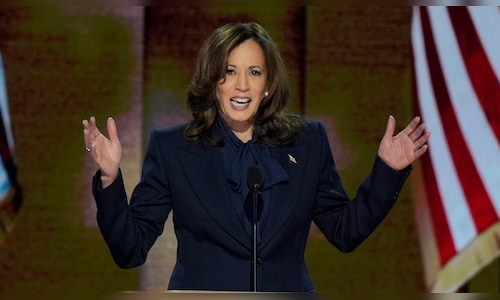Harris argued that mainstream economists favor her economic plan, which she says would encourage growth, while Trump’s policies would contract the economy.
Harris promotes economic relief for the middle class
Democratic presidential candidate Kamala Harris has launched her economic agenda, positioning herself as the only candidate on stage committed to “lifting up America’s middle class and working people.”
Addressing one of her key election vulnerabilities — rising prices and costs that have plagued American households — Harris outlined her plans to expand the child tax credit to $6,000 for newborns, provide mortgage assistance to new homebuyers and introduce a tax deduction for small businesses.
These measures, he argued, are designed to ease the financial burdens of working families and the middle class.
“The cost of housing is too high for too many people we know,” Harris said, emphasizing her commitment to addressing the high cost of living that continues to burden American families. She also took the opportunity to criticize Trump’s proposed tariff policy, arguing that it would only exacerbate economic challenges for ordinary Americans.
Defending Biden’s economic record
Harris also defended the current administration’s economic efforts, acknowledging the skepticism some voters have expressed toward President Joe Biden’s economic policies.
Harris blamed Trump for the current economic conditions and claimed that she and Biden have been working to “clean up Donald Trump’s mess” since he took office. Harris’ comments were intended to reassure voters that her administration would pursue economic policies that prioritize the middle class over the wealthy.
Harris’s claims are supported by a recent analysis by Goldman Sachs, which predicts that Trump’s proposed trade policies will slightly contract the U.S. economy in 2025. In contrast, Harris’s economic proposals are expected to result in modest growth as early as next year.
While Harris focused on her economic proposals, she did not hesitate to attack Trump’s approach, particularly his tariff policy, which she said would hurt American consumers and businesses alike.
She criticized Trump’s tariff plan, describing it as a “sales tax” on goods that would ultimately be borne by American consumers.
Trump, keeping a straight face, replied: “I don’t have sales tax. That’s an incorrect statement. She knows it.”
One of Trump’s key proposals involves imposing tariffs of 10% to 20% on most imports, with a staggering 60% tariff on Chinese goods.
Disclaimer:
The information contained in this post is for general information purposes only. We make no representations or warranties of any kind, express or implied, about the completeness, accuracy, reliability, suitability or availability with respect to the website or the information, products, services, or related graphics contained on the post for any purpose.
We respect the intellectual property rights of content creators. If you are the owner of any material featured on our website and have concerns about its use, please contact us. We are committed to addressing any copyright issues promptly and will remove any material within 2 days of receiving a request from the rightful owner.

